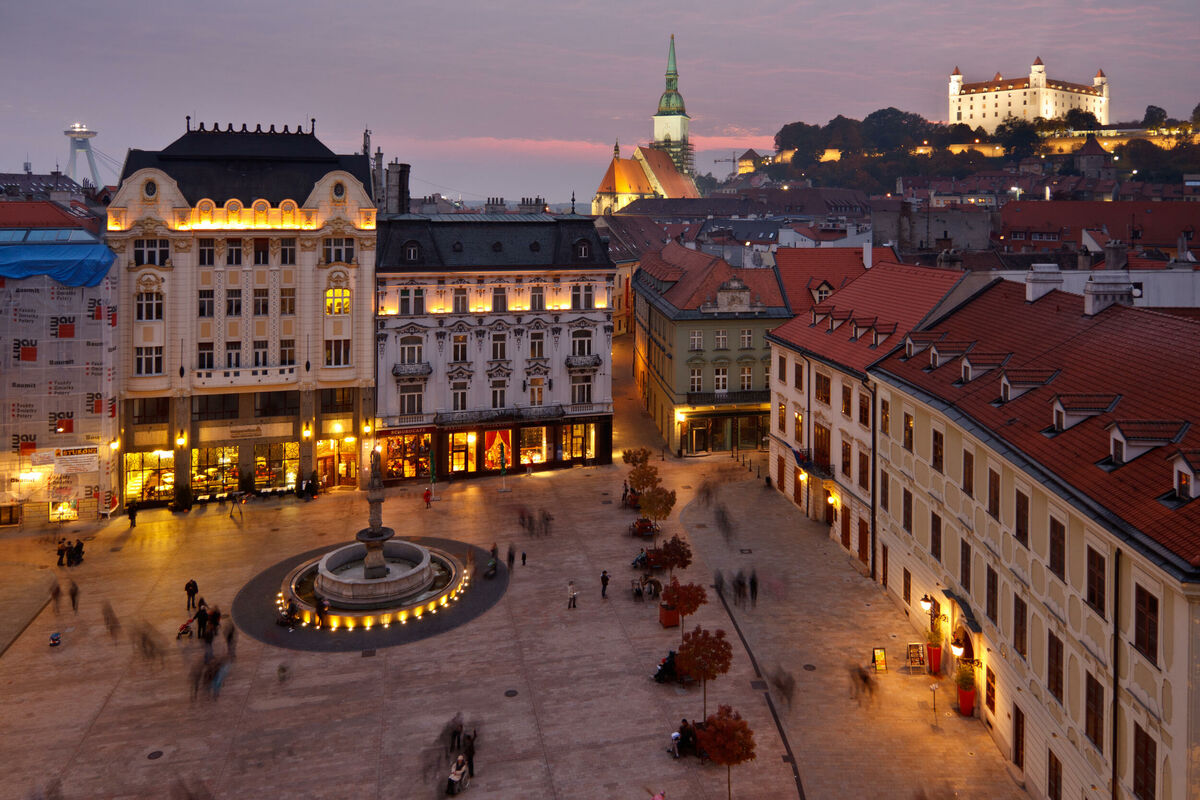On September 26, 2025, the National Council of the Slovak Republic adopted a constitutional change with a very narrow majority that has far-reaching consequences, including the country’s position within the European Union. “The Slovak Republic recognizes only two sexes, male and female, which are biologically determined,” the text of the law states. Adoption of children remains permitted only for married couples, and surrogacy is prohibited. In addition, “Slovak sovereignty in cultural and ethical matters” is to take precedence over EU law. Since 2014, the constitution has stated that marriage in Slovakia is only possible between a man and a woman.
The vote has been postponed twice before – in June, before the summer break, and again on September 25. The three-party government led by leftist-nationalist Prime Minister Robert Fico lacks the 90 votes needed for a three-fifths constitutional majority, and for a long time it seemed that the amendment would fail. The main opposition party, Progressive Slovakia (Progresívne Slovensko, PS), in particular, boycotted the vote. However, in the end, other parts of the opposition enabled its adoption.
Constitutional majority with the help of parts of the opposition
Several MPs from the Christian Democratic Movement (Kresťanskodemokratické hnutie, KDH) voted in favor of the amendments to the law, as did two MPs from the conservative anti-corruption party Slovak Movement (Hnutie Slovensko), even though that party is one of Prime Minister Fico’s fiercest opponents. Fico himself confirmed that he had invited several influential figures ahead of the parliamentary session and asked them to “talk” to MPs Rastislav Kratki and Marek Krajči. In the end, it was these two who were the “tipping point”.
In response to public criticism for his change of heart, which many opposition members saw as a betrayal, Krajči invoked “God’s will.” Speculation immediately arose in the media that he might also have been referring to the will of Fico, who is popularly considered a “hard-core communist” who maintains good contacts with leaders of the Catholic Church.
Shortly after the parliamentary decision in Bratislava, Katarina Tuke Jaremova, the European Commission representative in Slovakia, expressed regret that the adopted constitutional change did not take into account the concerns of the European Commission. Although the regulation of family law matters falls within the competence of member states, their implementation must not undermine a fundamental principle of EU law – the prohibition of discrimination. But that is exactly what is happening now, critics say.
Attack on people of different orientation
For Slovak actor, TV star and LGBTQ activist Jakub Petranik, the constitutional change represents yet another attack on people of different orientations, aimed at political gain. He points to the difference between sex and gender identity, as well as to research that many voters of the current ruling parties have a lower level of education and therefore do not understand the difference. Petranik wrote indignantly on Instagram: “The Middle Ages are not ending.”
The chief psychiatrist of the University Hospital in Banska Bystrica, Michal Patarak, expressed concern that medical assistance is now being prevented for transgender people, who are also citizens of the country. Their transition does not harm anyone from the Christian-conservative group, he wrote on Facebook. On the contrary, it is, according to him, “support for indirectly introducing discrimination into the constitution. How sophisticatedly aggressive.”
Political scientists Tomaš Kozjak and Radoslav Prohaska warn of the consequences of abolishing the principle of the primacy of European law over Slovak law. This could pave the way for the government to relativize previously valid legal norms. According to Amnesty International, this could also lead to human rights violations.
“Today is a dark day for Slovakia,” said Rado Sloboda, director of Amnesty International Slovakia. The constitutional change, he said, worsens the situation of already discriminated groups. “Instead of attacking citizens, the state should address the lack of legal protection for all families, marriage for all, as well as the rights of transgender and non-binary people, including access to healthcare and legal gender recognition,” said Sloboda. He believes the vote shows that the Slovak government has decided to follow the example of countries like Hungary and further weaken human rights.
A deeply divided society
Despite everything, President Peter Pelegrini signed the law, allowing it to come into force as early as November 1. Pelegrini founded the HLAS party in 2020, which describes itself as social democratic. A short statement came from the president’s office that, if read carefully, describes the state of Slovak society extremely clearly: “In times of deep social division, this is an important signal that there is unity around one specific issue.”
While the powerful Catholic Bishops’ Conference welcomed the constitutional change, civil society organizations launched an online campaign against it. In the first week, only 5.000 people signed the petition.
Solidarity, but also ridicule and hatred
Issues such as the right to adopt children for same-sex couples or surrogacy do not have majority support in Slovakia either, and are mostly seen as a problem only by those affected. On social media, there are expressions of solidarity and attempts to raise public awareness, but also a lot of ridicule and hatred.
Opposition forces are divided and are currently trying to recover from the parliamentary defeat. Although protests have been taking place across the country for months, they are primarily directed against the pro-Russian foreign policy of the Fico government.
Even before the constitutional amendment, some parties and civic initiatives announced the possibility of a general strike on November 17. However, it is currently uncertain whether this will happen, given the deep political divisions. Although that day could be a suitable date for mobilization, because in Slovakia November 17 is marked as the Day of Struggle for Freedom and Democracy. It is reminiscent of the events of 1989, when student demonstrations in Bratislava and Prague began the “Plush Revolution”, which led to the end of communist rule in Czechoslovakia and six months later to the first free elections in the country.

News

